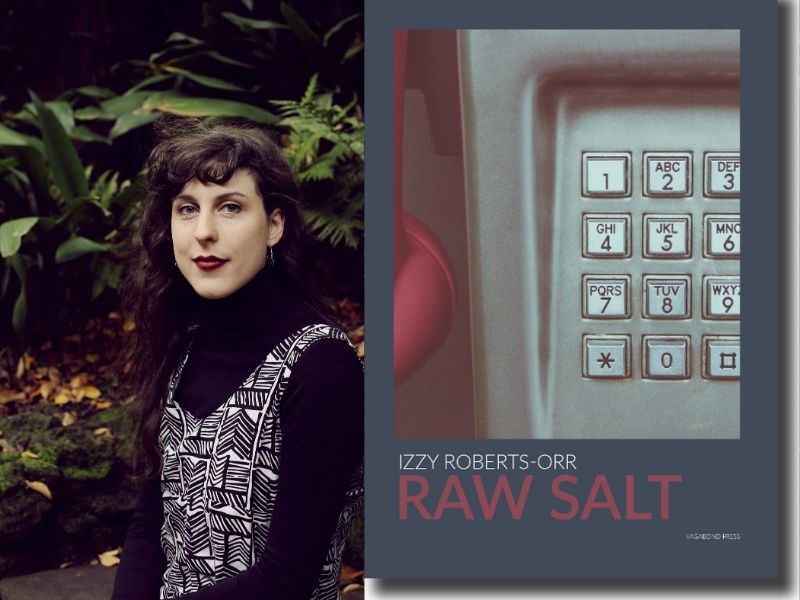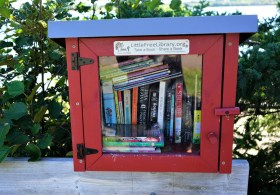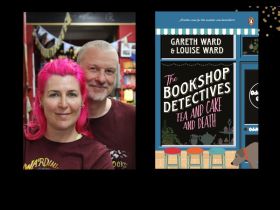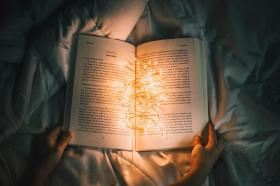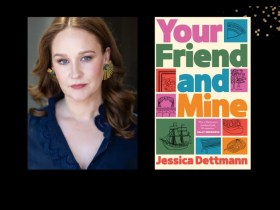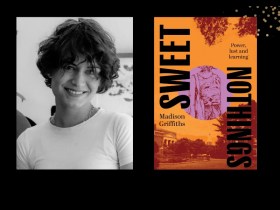Raw Salt is Izzy Roberts-Orr’s first poetry collection. Like many debuts, it holds a sense of heft – the accumulated weight of years of work. Much like Sarah Holland-Batt’s The Jaguar, Roberts-Orr’s poems here carry forward recent Australian writing’s ongoing interest in the relationship between daughter and father – between writer and muse, between Lacanian subject and object, between fledgling and ailing. Split across five sections– from ‘Wind Phone’ to ‘Still Life’ – Raw Salt examines grief, memory and love, as well as what it means to exist in the half-life aftermath of these things.
Each poem in Raw Salt acts as if moulded from flesh: they proliferate, viscerally heaving, moving quickly on the page as if blood-flecked. This fish-like quality flows through the entire collection, tying it firmly to the natural world.
Through writing about the death of her father, a horticulturalist, Roberts-Orr employs these environmental analogies to her advantage. In ‘Hauntings’, she considers the interconnections between people: the interrelations between selves, and how those we love, shape us. One observation leads to another, more significant moment: ‘even in the dream where you crumble like dry dirt / your heart is a small symphony / even houseplants have histories / even houseplants are haunted, like most things.’
The spectral turn is a twisting knife throughout Raw Salt – as both an ontological and physical manifestation of loss.
In ‘Twenty-Eight Thousand Kilometres of Fibre Optic Cable’, Roberts-Orr turns directly to the central conceit of the collection: the symbolic use of the telephone as a ‘hauntological’ device, both as a medium for two-way contact and as a one-way line to the dead. She writes: ‘your ghost hangs out in the phone lines. On / hold, Centrelink, self-serve banking, punching / numbers […] I call you, still.’ The presence of the deceased, singing in hazy, electric static, becomes a way to talk about the breath-close intimacy of familial ties.
This line of thought is continued in ‘At This Hour’, in which Roberts-Orr details the ways ‘memory and meat blur / knitting bones with the cry of the crow’ as the memory of her father knocks against her windowpane. Through upending this scene – an oneiric emotional landscape, somewhere between Wuthering Heights and Hamlet – she asks: ‘doesn’t he know / that the tap on the window / is reserved for lovers?’
Death allows these intimacies to proliferate. What the absent father at the window stands in for, more essentially, is the reader’s own position: stood beyond that of the poet, watching on distantly even as the scene is performed – with, or without us.
Raw Salt is a powerful debut. It offers its readers much in the way of elegiac work, which holds itself apart, always, from falling into the traps of the purely confessional.
What Roberts-Orr proposes, instead, is a kind of deep engagement. In its aftermath, the reader is left holding on to the closing line of ‘Scent Memory’: ‘a litany of images / that won’t let go, ectoplasm of object permanence.’
Read: Book review: The Silver River, Jim Moginie
Raw Salt is an opening out of an internal emotional world, a daring reckoning with the double exposures of grief.
Raw Salt, Izzy Roberts-Orr
Publisher: Vagabond Books
ISBN: 9781925735598
Pages: 96pp
Publication Date: 27 February 2024
RRP: $25
